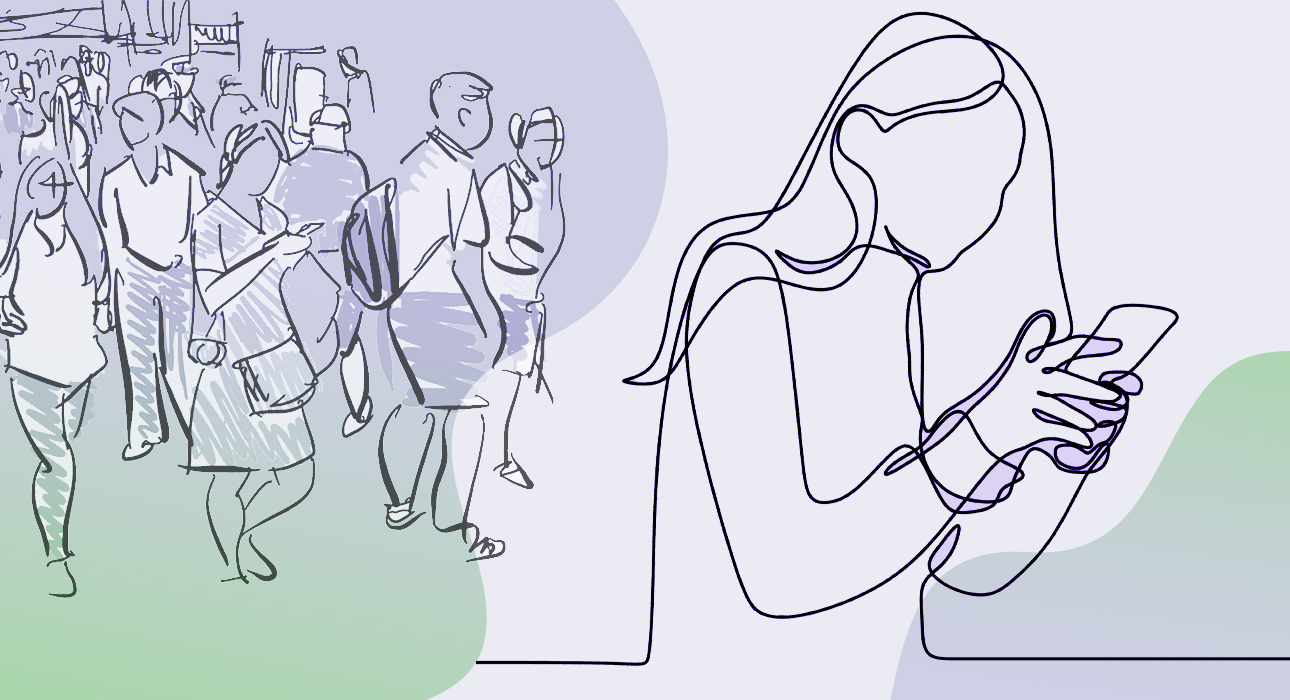Over the past few months, our lives have literally been split into “before” and “after” with no warning, pushing us out of our grueling daily routine. It is now impossible to stand aside: television broadcasts, radio talks, media articles, recent events are discussed on social networks, on the streets, at friendly gatherings and family dinners, about what is happening in the world. However, the general anxiety and fear that chains millions of people will unfortunately not benefit us or anyone else. It is more important than ever to remain human in the highest moral sense of the word, in today’s world where the notifications on the phone screen do not go off for a minute and all the conversation topics are one-on-one. Supporting those near and far, respecting each other’s personal boundaries, trying to remain calm and competent without panicking is an accessible contribution to today’s pervasive and fixable madness. We exist for a peaceful sky above our heads. Today, tomorrow, and for decades and hundreds of years to come. We are sure that we are not alone in this.
On how you can help yourself and others, we are engaging Ekaterina Artemenko, a gestalt therapist and community director of the Yasno psychological video counseling service.

How to get rid of or lower the level of anxiety?
It is important to distinguish between the concepts of anxiety and fear. The second is an emotion that evolution has given us, calling us to run, flee, attack, defend, stop and freeze (the main thing is not to stay in this state for long). Anxiety is defined as a specific worry that has not yet turned into fear. This is a stopped excitement that can result in anger, embarrassment, and other emotions.
It is important to stay as still as possible between two fires to try to understand what is going on. It is necessary to define, analyze your emotions: how do I breathe, how do I stand, do I stand on my feet? Look around you, assess the objective situation – here are the walls, here is the lamp – and find in the usual places fixed objects that perform the usual functions.
We should talk about what happened, but not by instilling fear into each other, but by expressing our feelings.
If possible, it is better to choose psychotherapists for such conversations – an “ordinary” interlocutor can only increase anxiety.
It is also important to maintain the “reality principle”, keep track of what is happening, check the status of loved ones, talk to them, remember important, valuable, routine things that happened before and hopefully will remain after: what can I do? eat, what kind of tea do i want, how does grandma make it? One of the most important things is to come to this situation with stability, calm down, be aware of what you can and cannot influence. As a rule, we live in a misty reality where it seems to us that nothing depends on us or that we can change everything now. Both are wrong, so you need to find a limit where something can realistically be done. The reason may be the banal encouragement of others, the preparation of a delicious dinner, an extra call and words of support.
Establish a zone of goodwill around you – this is something we can be responsible for but remember last.
How to recognize stress and understand that help is needed?
The first is the feeling of restlessness and physical constant excitement. For example, palpitations, the need to be active, loss of critical thinking. Stress can manifest itself even at the visual level, when everything is seen as in a tunnel. It is important to return to normal at such moments.
Second, the feeling of helplessness, lack of choice, narrowing of consciousness, frenzied anxiety, turning of stress into apathy, this is the signal to seek help. Of course, it is undesirable to bring it into such a state.
Now is when everyone needs help.
At the same time, when we help others, acting as a stable, balanced, calm figure, we also help ourselves.
Who can and should be contacted in the event of a critical panic?
Doctors, psychotherapists, psychiatrists.
What can everyone do to avoid causing panic in the society?
Create a conditional peace zone around you where you can talk, breathe, have enough air, no one escapes or collides, but a support where they observe and support themselves and each other.
Who is most prone to anxiety and panic in such situations?
Both people with an active psyche and those accustomed to relying on a routine, stable, daily life with clear boundaries are at risk. A person can behave unpredictably: those who have experienced severe stress in a similar situation, on the contrary, can pull themselves together and find the balance that they lack in “peacetime”. However, among those most prone to panic can still be distinguished those who live with a sense of control and stability and are shown not to be the case.
How to behave in the face of global uncertainty?
I will probably say something terrible, but we are always in a state of global uncertainty and we never know what will happen tomorrow, or even the next second of our lives. It is important to realize yourself and your feelings, your limitations, your needs, those around you and those who need me, who you can trust and trust.
Now you need to invest not in currency, but in the balance and stability of yourself and those around you.
How to talk to children about such topics?
The best way is to do it honestly. Tell them what happened, but do not be afraid and do not be afraid ourselves, remind us that we have each other and what can be done in such a situation. It is important to convey to the child that it is normal to experience certain emotions in such a situation.
Children have a more resilient psyche: they “infect” faster, but at the same time they are better balanced.
It is useful to talk to children about such topics through the prism of evolution and history – to talk about what has already happened.
How to behave in social networks?
Do not provoke conflicts, support each other. Instead of dividing and separating, you must see what is common and unite.
Source: People Talk
I’m Roger Gritton, and I’ve been writing for the The Fashion Vibes for over 5 years now. My specialty is beauty news; I’m passionate about covering the latest trends, products, and innovations in the industry. In my time there, I’ve become known as an authority on all things beauty-related.
I love discovering new experts to interview, researching up-and-coming ingredients and techniques that are making their way onto our beauty shelves and highlighting people who are making a difference in the world of cosmetics. My work has appeared not only on The Fashion Vibes, but also several other publications including the New York Times Magazine, Allure Magazine and Refinery29.





